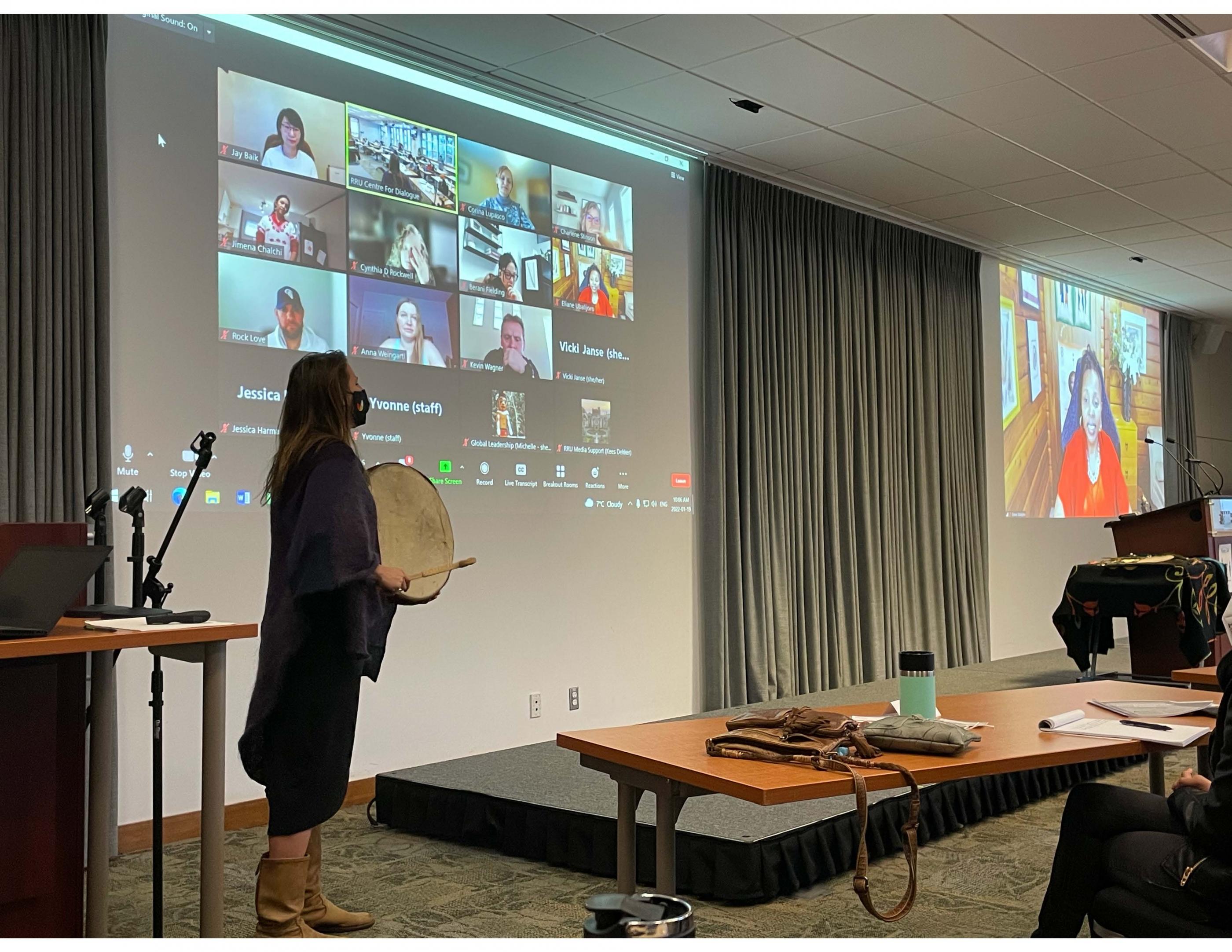Thank You to Future Earth
Featured
Share online

The School of Leadership Studies and MA in Global Leadership team wishes to express their deep gratitude to Dr. Eliane Ubalijoro, Alison Surveyor, and Future Earth team for their engagement as our MA in Global Leadership Cohort’s Leadership Challenge™ sponsoring organization for 2022.
The purpose of the Leadership Challenge™ is to create a mutually beneficial learning experience for an international organization and graduate students in the first year of their Master of Arts in Global Leadership. To create this learning experience, some inquiry with the organizational sponsor is necessary and we are grateful to Dr. Eliane Ubalijoro, Executive Director of Sustainability in the Digital Age and the Global Hub Director in Canada for Future Earth, and team, for their commitment of time and voluntary engagement in the activity: “Empowering African Women Farmers through Leveraging AI Technologies for Regenerative Agriculture.”
Future Earth is an international platform for research, innovation, and collaboration working to accelerate transformations to global sustainability (Future Earth, 2022). With offices all over the world, it harnesses the experience and reach of thousands of scientists and innovators from across the globe. Sustainability in the Digital Age (SDA) is a partner organization to Future Earth (SDA, 2020). As an international initiative, SDA builds networks, conducts research, and sparks innovation in technology, policy, and social change, at the intersection of the natural, social, and digital worlds.
SDA works across three areas: (1) facilitate research and innovation for leveraging digital capabilities to transform social systems; (2) advance innovative policies, standards, and best practices for building sustainability in the digital age; and (3) train the next generation of leaders to navigate the intersection of the two most powerful forces shaping our world today: digital transformations and global environmental change. To support the Future Earth's mission, the Global Leadership students were tasked with the challenge to produce thinking and approaches for this activity.
Women are more affected by climate change than men – 80% of people displaced by it are women. Given that women represent 60-80% of the labor market in African agriculture (Palacios-Lopez, et al., 2017) and more than 60% of all employed women in Africa south of the Sahara work in agriculture, regenerative agriculture can have a particularly transformative impact on female smallholder farmers. It does not usually require costly inputs or access to capital, and as such helps support gender equity (Jones, 2020).
It was also proven in academic literature that environmental restoration programs are more likely to be successful when there’s equitable gender participation in land management decision making (Chomba, et al., 202; Broeckhoven, & Cliquet, 2015). As such, we can believe that with effective investments and policies, woman-run farms could produce a bumper crop of innovation and development for this space. Currently African women farmers are in extremely vulnerable situations, with scanty harvest due not only to poor weather and soil quality, but also because of their gender and the “dense web of laws, policies, programs, and customs that put them at a significant disadvantage” (Meinzen-Dick, 2019). MA in Global Leadership students presented their ideas as teams to Future Earth and had the opportunity to engage and learn from Dr. Ubalijoro and her team. Last, but not least, a special thank you to Thalia Malaïka Urbani for joining us with sharing her incredibly beautiful songs of hope, inspiration, and action to move the minds, hearts, and will of all those in this hybrid classroom.
The Leadership Challenge™ is a cornerstone of the first residency of the Global Leadership programs and the Master of Arts in Leadership program. For more information or to inquire about becoming a potential sponsor, please contact us at leadership.admin@royalroads.ca.
References
Broeckhoven, N., & Cliquet, A. (2015). Gender and ecological restoration: Time to connect the dots. Restoration Ecology, 23(6), 729–736. Retrieved from: https://doi.org/10.1111/rec.12270
Chomba, S., Sinclair, F., Savadogo, P., Bourne, M., & Lohbeck, M. (2020). Opportunities and Constraints for Using Farmer Managed Natural Regeneration for Land Restoration in Sub-Saharan Africa. Frontiers in Forests and Global Change, 3(November). Retrieved from: https://doi.org/10.3389/ffgc.2020.571679
Jones, K. (2020). Zero hunger zero emissions: Land-based climate change mitigation, food security, and equity. Oxfam Policy and Practice.
Meinzen-Dick, R. (2019). Empowering Africa’s women farmers. International Food Policy Research Institute. Retrieved from: https://www.ifpri.org/blog/empowering-africas-women-farmers
Palacios-Lopez, A., Christiaensen, L., & Kilic, T. (2017). How much of the labor in African agriculture is provided by women? Food policy, 67, 52–63. Retrieved from: https://doi.org/10.1016/j.foodpol.2016.09.017